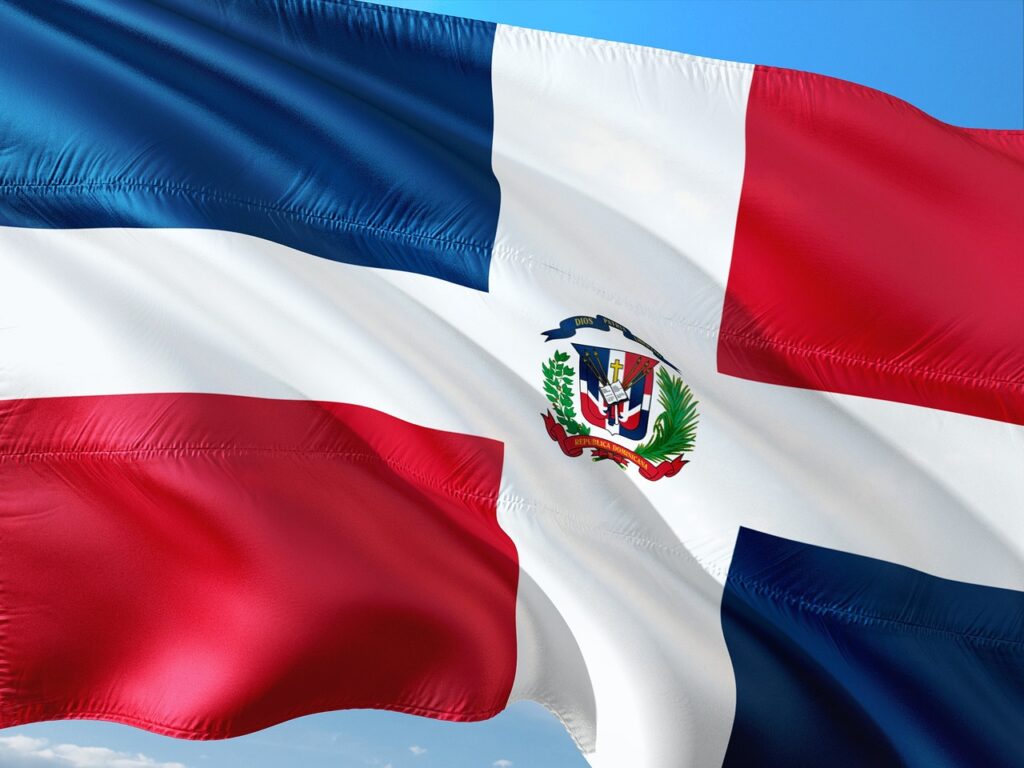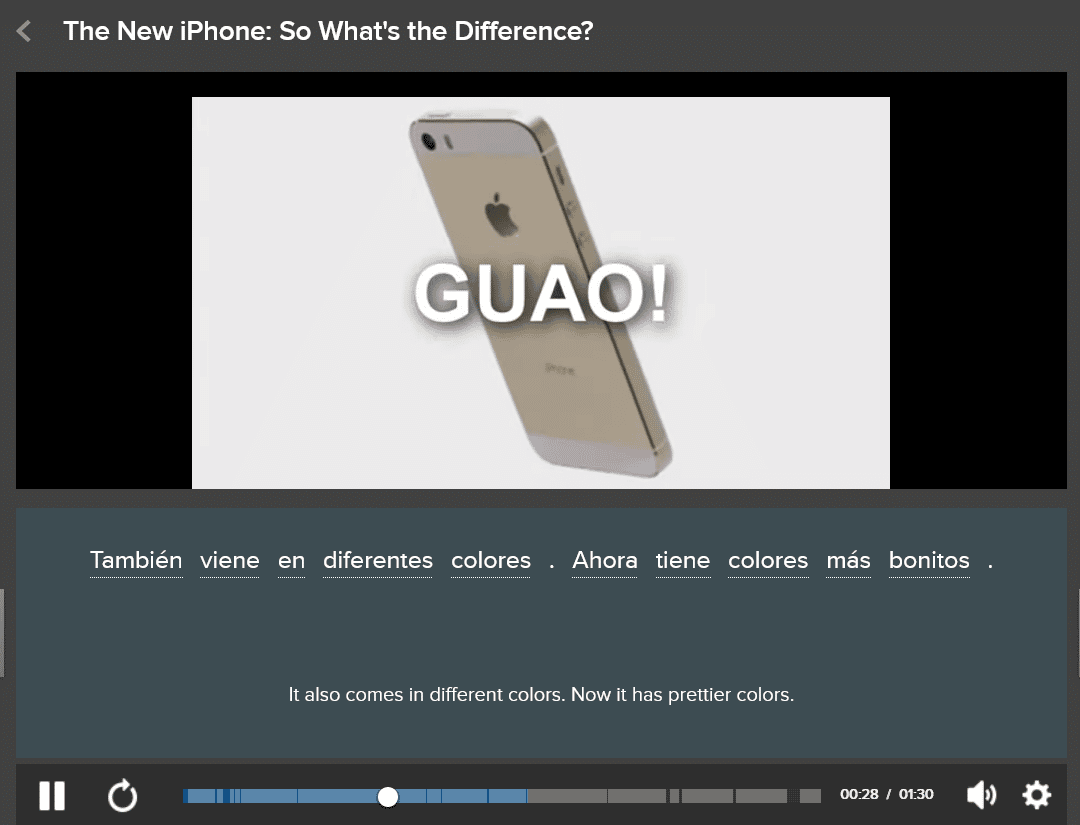
31 Unique Dominican Slang Terms
Ask any Spanish speaker and they’ll tell you: Dominicans have their own way of doing things.
Their language is a cool fusion of indigenous and European languages like no other.
If you want to talk to natives and have your message received, you absolutely must know Dominican slang.
Contents
- 1. Acotejarse
- 2. Bacano
- 3. Carajito
- 4. Chercha
- 5. Chillaxing
- 6. Chin
- 7. Colmado
- 8. Concho
- 9. Esquimalito
- 10. Jevi / Jevi nais
- 11. Hartura / Jartura
- 12. Yala
- 13. Pana
- 14. Lengua larga
- 15. Dame dato
- 16. Dime, a ver
- 17. Mai / Pai
- 18. ¿Qué lo what?
- 19. Jevo / Jeva
- 20. Zafacón
- 21. Chulo / Chula
- 22. Sanky-panky
- 23. Tíguere
- 24. Poloché
- 25. Abombarse
- 26. Nítido
- 27. Tícher
- 28. Confléi
- 29. Guagua
- 30. Yipeta
- 31. Vaina : The Most Useful Dominican Slang Word
- Why and How to Learn Dominican Slang
Download: This blog post is available as a convenient and portable PDF that you can take anywhere. Click here to get a copy. (Download)
1. Acotejarse
This means to acclimatize and get used to your surroundings. This shouldn’t take long in the beautiful Dominican Republic.
2. Bacano
This can be used to describe something as cool, just as Colombians use it. But if someone is a bacano, it means that they’re good at something really difficult. You can only hope all the locals are shouting this at you when you try something challenging for the first time.
3. Carajito
This is a semi-derogatory word for a child, so don’t go using it for your neighbor’s kids. Children that are badly behaved and generally annoying definitely deserve the term carajitos, so you can reserve it for those who are running around the tables while you’re trying to eat out!
4. Chercha
A great example of an Anglicism that has changed in sound and meaning, this one comes from “cheers,” or possibly even “church,” but refers to a good time or a party. If you’re lucky, you might get to spend the evening at a Dominican chercha!
5. Chillaxing
One of my favorite things to hear Dominicans say. This term is an Anglicism for relaxing in a very chilled and lazy way—possibly by the pool, with a drink in hand.
6. Chin
Do you want to try something while exploring this place, but maybe just a little bit? Then use chin, as in Dame un chin de jugo (Give me a little bit of juice).
7. Colmado
Colmado is a small corner store, the kind in your neighborhood, especially where you’ll run when you’re out of milk or craving a soft drink.
8. Concho
This refers to a taxi—something you’ll likely want to take at some point while exploring the country.
9. Esquimalito
If the weather is really hot, you’ll definitely want one of these! Usually translated as “Popsicle,” although it can sometimes be a frozen drink. It’s also pretty fun to say and almost onomatopoeic of squeezing a Popsicle from the wrapper!
10. Jevi / Jevi nais
Jevi (also spelled jebi) and its longer variant jevi nais come from the English words “heavy” and “nice” and basically mean “cool.” So if you’re modeling new clothes and are greeted by one of these two, you know you’ve mastered the Dominican cool.
11. Hartura / Jartura
This refers to that feeling of having eaten too much and is a very useful slang word when eating out. Think of it as a Dominican slang word for hartazgo.
12. Yala
A very casual word, yala translates to “okay” or “alright” and is one that you’ll definitely hear among friends.
13. Pana
Your pana is your buddy, your pal, your bro—take your pick! A term of endearment and closeness, but also a cool word to use, it’s something you can use with all your new friends in the Dominican Republic! This word is also used in many other countries to mean the same thing.
14. Lengua larga
This is essentially someone who’s very chatty, literally someone who has a long tongue, meaning it’s never in their mouth because they’re always talking.
15. Dame dato
This phrase means “tell me (about it),” and once said, you’re then expected to launch into a descriptive and entertaining story. It literally means “give me some information.”
16. Dime, a ver
This one means “what’s up?”. Dominicans usually linger on the last syllable, especially if they really want an answer, as they usually do. Dominicans are polite and it isn’t just a greeting as in English. When translated literally, it means: “Tell me, let’s see.”
17. Mai / Pai
Respectively, these words are used to affectionately refer to your mom and dad.
18. ¿Qué lo what?
This means “what’s going on?” and “what’s up?”, and it will often be used in a casual way as a greeting or a question.
19. Jevo / Jeva
Jeva/jevo is an affectionate term for your girlfriend/boyfriend, respectively. Jevón is often used to describe a pretty girl, which is quite close to jevo, so don’t mistake the two!
20. Zafacón
This word is used to refer to a trash can or garbage bin. Here you can see another Anglicism as it sounds a little bit like “safe can.”
21. Chulo / Chula
To be chulo/chula is to be cute or cool. It can be used to refer to a person or a thing, such as a camisa chula (cool shirt). This word is also used in other countries in the Caribbean and Latin America. It’s also very common in Spain, but its meaning is different, so make sure to learn the difference before using it there!
22. Sanky-panky
Hilariously, this means a gold-digger and comes from the phrase “hanky-panky.” Make sure you remember this one because if someone tells you that someone else is a sanky-panky, you’ll want to know what that means to avoid any mishaps!
23. Tíguere
This can be used to refer to a kind of hustler with street smarts. They’ll do anything to get what they want, so you’d better watch out!
24. Poloché
This one’s an Anglicism from “polo shirt” and means the same as the word it came from!
25. Abombarse
This word describes food or drink that’s going bad. No one wants to drink water when it’s abombada or eat fruit that’s about to abombarse!
26. Nítido
One of the most commonly used words among Dominican youth, it means “great/cool” and comes from “neat.” If something is nítido, you want to buy it.
27. Tícher
This word comes from “t-shirt,” but it doesn’t mean that. It’s actually a rugby/football jersey. If you want one of those, ask for a tícher.
28. Confléi
This comes from “corn flakes” but it refers to any cereal. You’ll hear this in Central America, too.
29. Guagua
A very useful word to learn, guagua is a bus. You’ll also hear this word in many other Caribbean countries.
30. Yipeta
Yipeta is a word derived from the car brand “Jeep” and is used for an SUV.
31. Vaina : The Most Useful Dominican Slang Word
Whether you want to use this word or not, you’re definitely going to hear it if you’re speaking to Dominicans. Like a lot of slang words, it doesn’t translate particularly well and mastering it is quite a fine art. Vaina can mean:
Something unknown or unmentionable (this could be neutral or negative)
- Me va a dar una vaina. (I’m going to come down with something.)
- Dame esa vaina. (Give me that thing.)
- ¡Me gusta esta vaina! (I like this thing/stuff!)
A thing or situation that’s unpleasant
- Deja esa vaina. (Stop pestering. / Leave that alone.)
There’s also a whole lot of set phrases and expressions that use this versatile word:
- De vaina la conocí. (I met her by chance.)
- Él siempre me echa vaina. (He’s always teasing me.)
Basically, vaina can be a positive, neutral or negative term, depending on the context, though you should always use it in informal conversations.
You may also see this word written out as baina, although this variant isn’t generally accepted.
Why and How to Learn Dominican Slang
Slang is used in regular Dominican conversations a lot more frequently than it is in most other Spanish dialects. They have many friendly phrases like Dime, a ver (what’s up?) that are essential for chatting with locals. They use Anglicisms in fresh and hilarious ways and have the most beautiful, untranslatable vocabulary.
Using standard Spanish with Dominicans is like asking Picasso to paint in black and white!
Dominican slang has quite an informal register, so it’s not uncommon to use slang with people you’ve only just met and it’s certainly not considered uneducated. Dominican speech is very fast, so you might want to make sure you have the right word by rephrasing the sentence as a question and confirming, ensuring that you don’t use slang mistakenly in the wrong context.
Once you’ve mastered the lingo, Dominicans will be delighted to converse with you and help you navigate the nuances of Dominican slang. If you can get the hang of their fast speech, passionate disposition and interesting articulation, you’ll certainly learn a lot about creative expression.
To hear this lingo in action, we recommend a stop by Gritty Spanish (assuming you’re all grown up and okay with some mature language). They often incorporate Dominican slang and accents into their dialogues, so it can be a fun—and slightly offensive yet humorous—way to hear your Dominican Spanish in action, used by native speakers in real ways.
You can also find some authentic Dominican videos on FluentU, which teaches Spanish through native videos like music videos, movie clips, vlogs and commercials. Videos include dual-language subtitles that can be clicked on for a definition or more video examples.
Some of the Dominican content included on FluentU is a parody about the iPhone 5 and an interview video that asks Spanish-speaking people where they’re from.
FluentU lets you search for words to see videos that use the terms, and since the dictionary is contextual, you’ll always know when a word is being used as slang. Learn these words through quizzes designed to optimize your learning through spaced repetition.
Practice your Dominican Spanish skills before you head out—after all, what use is knowing slang if you can’t use it in a sentence?
For more slang words in the Spanish-speaking world, check out this post and the country-specific posts underneath it:
Common Spanish Slang from Around the World (Audio Included) | FluentU Spanish Blog
Spanish slang is your key to sounding like a native. And with 291 Spanish slang words and phrases, you’ll be able to fit in with any Spanish speaker! This post shows you…
- Argentinian slang
- Bolivian slang
- Chilean slang
- Colombian slang
- Costa Rican slang
- Cuban slang
- Ecuadorian slang
- Guatemalan slang
- Honduran slang
- Mexican slang
- Nicaraguan slang
- Panamanian slang
- Paraguayan slang
- Peruvian slang
- Puerto Rican slang
- El Salvadorian slang
- Uruguayan slang
- Venezuelan slang
Now that you know all the Dominican slang you need, it’s time to book a trip!
Download: This blog post is available as a convenient and portable PDF that you can take anywhere. Click here to get a copy. (Download)








